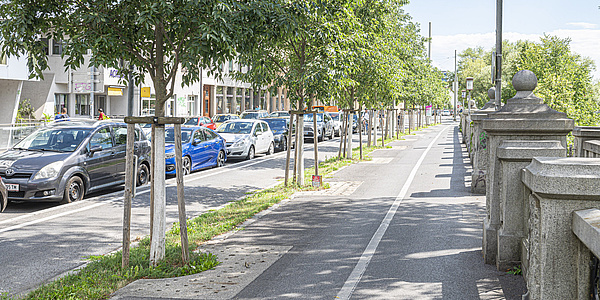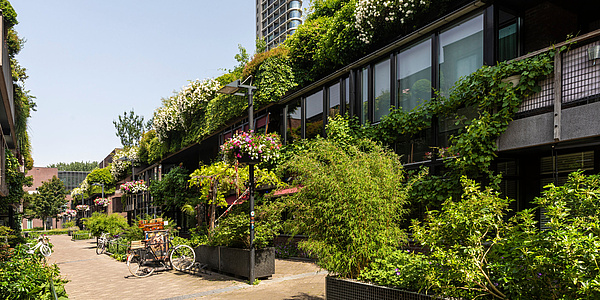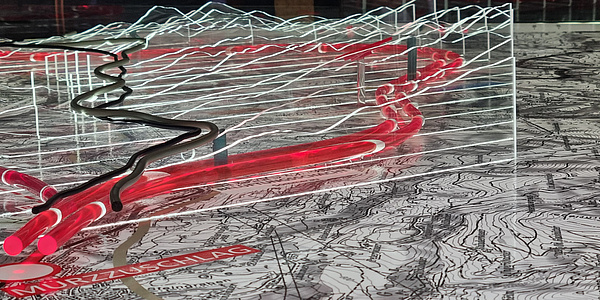Less Pollution During Heavy Rainfall: TU Graz Calculates Potential of Nature-Based Measures

Decentralised urban drainage systems on private and public lands could absorb half a million cubic metres of water in Graz alone.

Decentralised urban drainage systems on private and public lands could absorb half a million cubic metres of water in Graz alone.

The consequences of global warming are also becoming increasingly noticeable in Styria. TU Graz has analysed how they affect individual municipalities and derived suitable recommendations for action.
One topic, but a multiplicity of angles and perspectives.
Energy storage systems are becoming increasingly important, powerful and widespread. However, this also means that the demands on their safety and durability are growing.

A good urban climate also needs a good traffic concept. Aglaée Degros, head of the Institute of Urbanism at TU Graz, explains what such concepts could look like and how they could succeed.

To learn something at university, you don’t always have to go to the lecture hall or library. Sometimes one of Austria’s most famous construction sites is the perfect place for this.

For us, utilising solar energy often means generating electricity using photovoltaics. Sophisticated architectural modifications, however, make much more possible.
![[Translate to Englisch:]](https://www.tugraz.at/fileadmin/_processed_/c/3/csm_Banner_AdobeStock_612446404_Editorial_Use_Only_by-Sven_Kreutzer_Wirestock_Creators_006119159a.jpg)
One of the first major studies on abrasion emissions from rail vehicles shows that a lot of particulate matter contaminated with heavy metals is produced especially along railway lines.
Monthly Newsletter about current Researchtopic at Tu Graz. Follow now.
TU Graz | Communications and Marketing
Rechbauerstraße 12, 8010 Graz
+43 316 873 6005
kommunikation@tugraz.at